第7章 JIMMY'S BIG BROTHER FROM CALIFORNIA(7)
There was a pause, and Falloner, slightly lifting his head without disturbing that faintly clasping finger, beckoned Miss Boutelle to his side. "Can you drive?" he said, in a low voice.
"Yes."
"Take my sleigh and get the best doctor in town to come here at once. Bring him with you if you can; if he can't come at once, drive home yourself. I will stay here."
"But"--hesitated Miss Boutelle.
"I will stay here," he repeated.
The door closed on the young girl, and Falloner, still bending over the child, presently heard the sleigh-bells pass away in the storm.
He still sat with his bent head, held by the tiny clasp of those thin fingers. But the child's eyes were fixed so intently upon him that Mrs. Ricketts leaned over the strangely-assorted pair and said--
"It's your brother Dick, dearie. Don't you know him?"
The child's lips moved faintly. "Dick's dead," she whispered.
"She's wandering," said Mrs. Ricketts. "Speak to her." But Bob, with his eyes on the child's, lifted a protesting hand. The little sufferer's lips moved again. "It isn't Dick--it's the angel God sent to tell me."
She spoke no more. And when Miss Boutelle returned with the doctor she was beyond the reach of finite voices. Falloner would have remained all night with them, but he could see that his presence in the contracted household was not desired. Even his offer to take Jimmy with him to the hotel was declined, and at midnight he returned alone.
What his thoughts were that night may be easily imagined. Cissy's death had removed the only cause he had for concealing his real identity. There was nothing more to prevent his revealing all to Miss Boutelle and to offer to adopt the boy. But he reflected this could not be done until after the funeral, for it was only due to Cissy's memory that he should still keep up the role of Dick Lasham as chief mourner. If it seems strange that Bob did not at this crucial moment take Miss Boutelle into his confidence, I fear it was because he dreaded the personal effect of the deceit he had practiced upon her more than any ethical consideration; she had softened considerably in her attitude towards him that night; he was human, after all, and while he felt his conduct had been unselfish in the main, he dared not confess to himself how much her opinion had influenced him. He resolved that after the funeral he would continue his journey, and write to her, en route, a full explanation of his conduct, inclosing Daddy's letter as corroborative evidence. But on searching his letter-case he found that he had lost even that evidence, and he must trust solely at present to her faith in his improbable story.
It seemed as if his greatest sacrifice was demanded at the funeral!